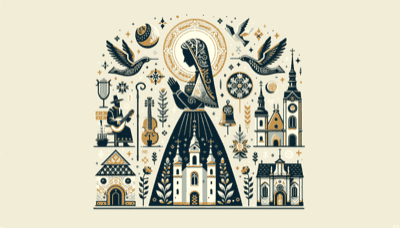We're here to help you keep count of the days to or since a date. Just click the button below and enter your chosen date to get started. Also choose the suggested days or search for a special day above #countingthedays

Date: September 28
Significance: St. Wenceslas Day, known as "Den české státnosti" (Day of Czech Statehood), is a Czech national holiday celebrating the patron saint of Bohemia, Saint Wenceslas (Svatý Václav), who was a duke of Bohemia from 921 until his assassination in 935. He was posthumously declared a king and became a symbol of Czech statehood and integrity.
History: St. Wenceslas was born into the Premyslid dynasty as the son of Duke Wratislaus I of Bohemia. His grandmother, Saint Ludmila, raised him as a Christian. After his father's death, political conflict ensued, and his mother Drahomira took over as regent. Eventually, Wenceslas gained power and gained a reputation for his piousness and dedication to Christian values. His brother Boleslav invited him to a feast and arranged his murder on the way to church; this act of betrayal cemented Wenceslav's status as a martyr.
The cult of St. Wenceslas grew after his death, contributing significantly to the medieval identity of the Bohemian state. In 985, nearly 50 years after his death, Wenceslas's remains were moved to St. Vitus Cathedral in Prague, which became an important pilgrimage site.
Traditions: - Religious Services: Many people attend church services dedicated to St. Wenceslas. - Cultural Events: Concerts and cultural events highlight Czech history and heritage. - Public Ceremonies: State officials lay wreaths at the statue of St. Wenceslaus in Prague’s Wenceslas Square. - Flag Display: The national flag is prominently displayed across public buildings.
Modern Observance: While it is not celebrated with as much popular festivity as other holidays like Christmas or Easter, St. Wenceslas Day remains an occasion for patriotic reflection on Czech history and culture. It is also a day off work for most people in the country, providing an opportunity for family gatherings or short vacations.
Schools often teach children about the importance of St. Wenceslaus and may have special programs or activities related to Czech history around this time.
Each year on September 28th, people across Czechia remember their patron saint and reflect on their nation's past struggles and achievements through solemn commemoration rather than exuberant celebration.